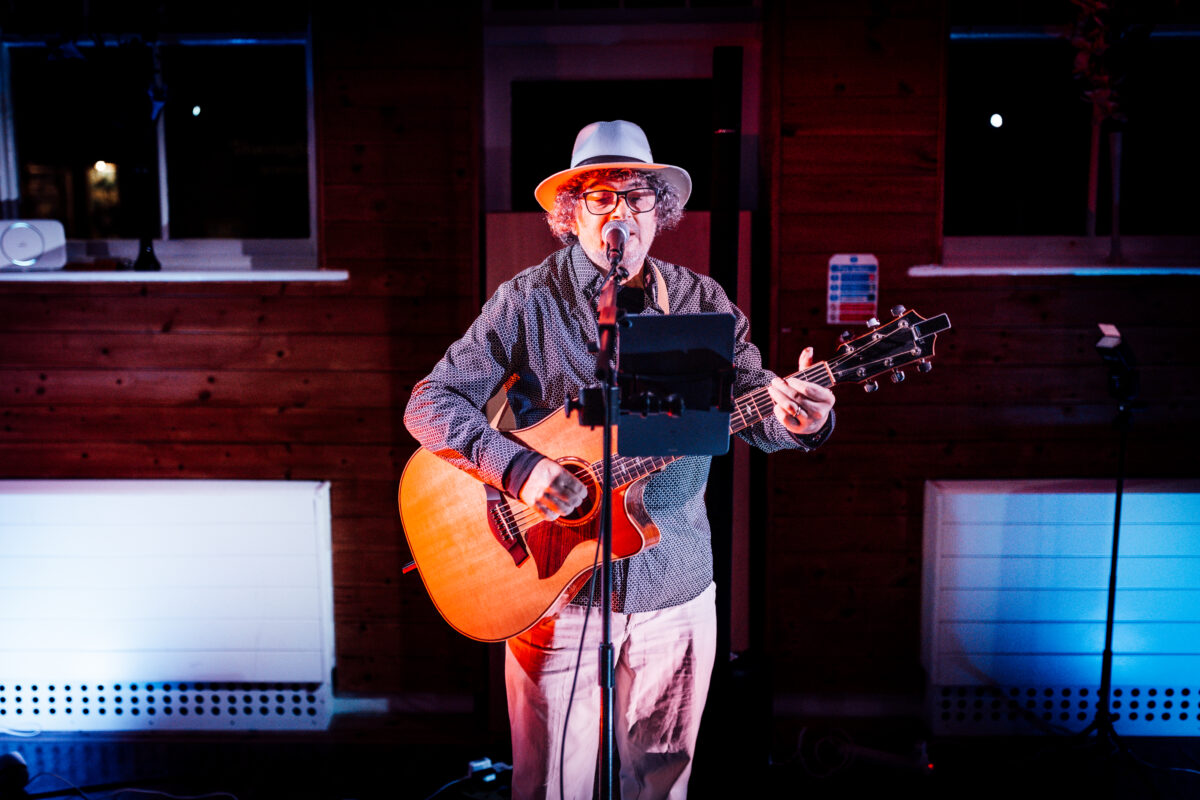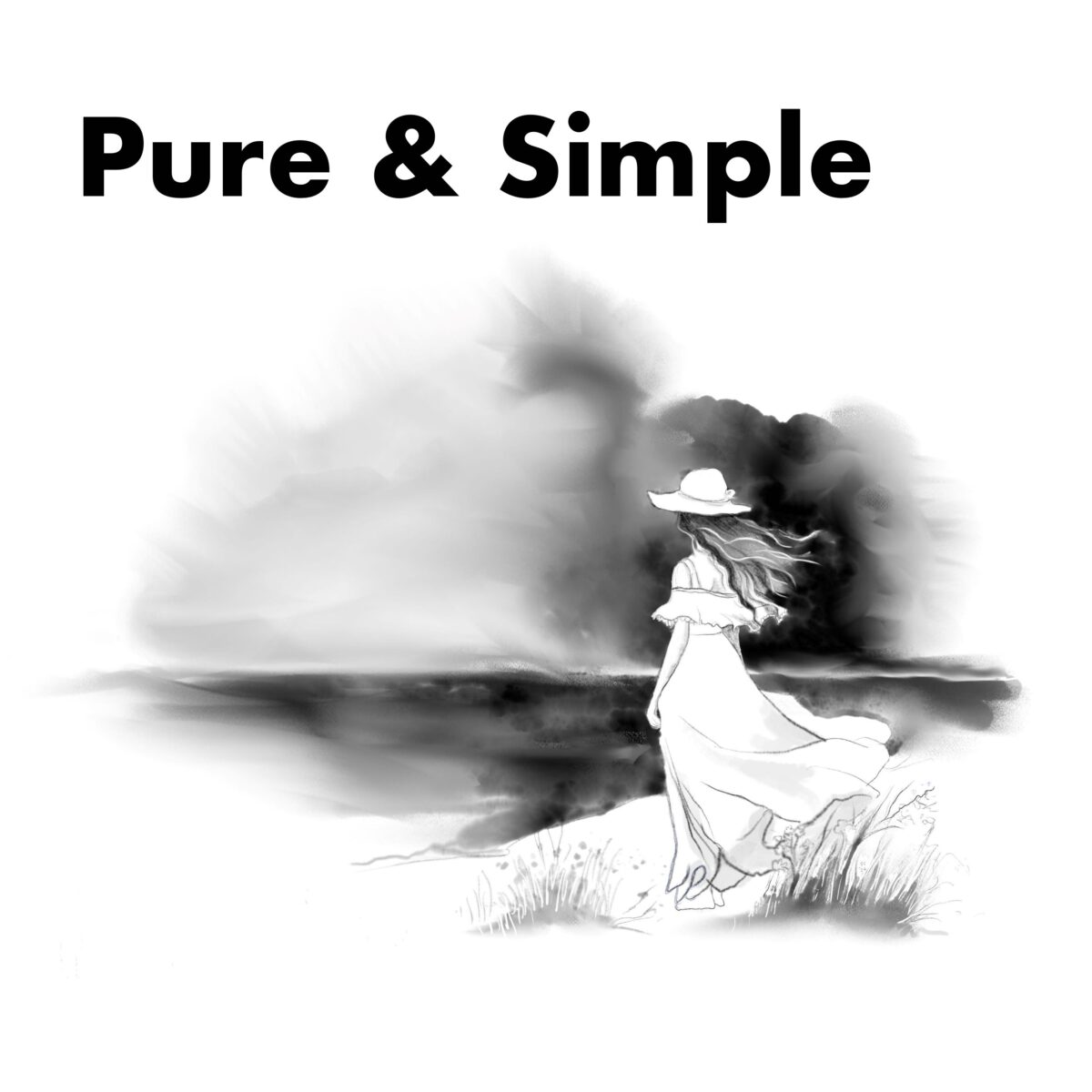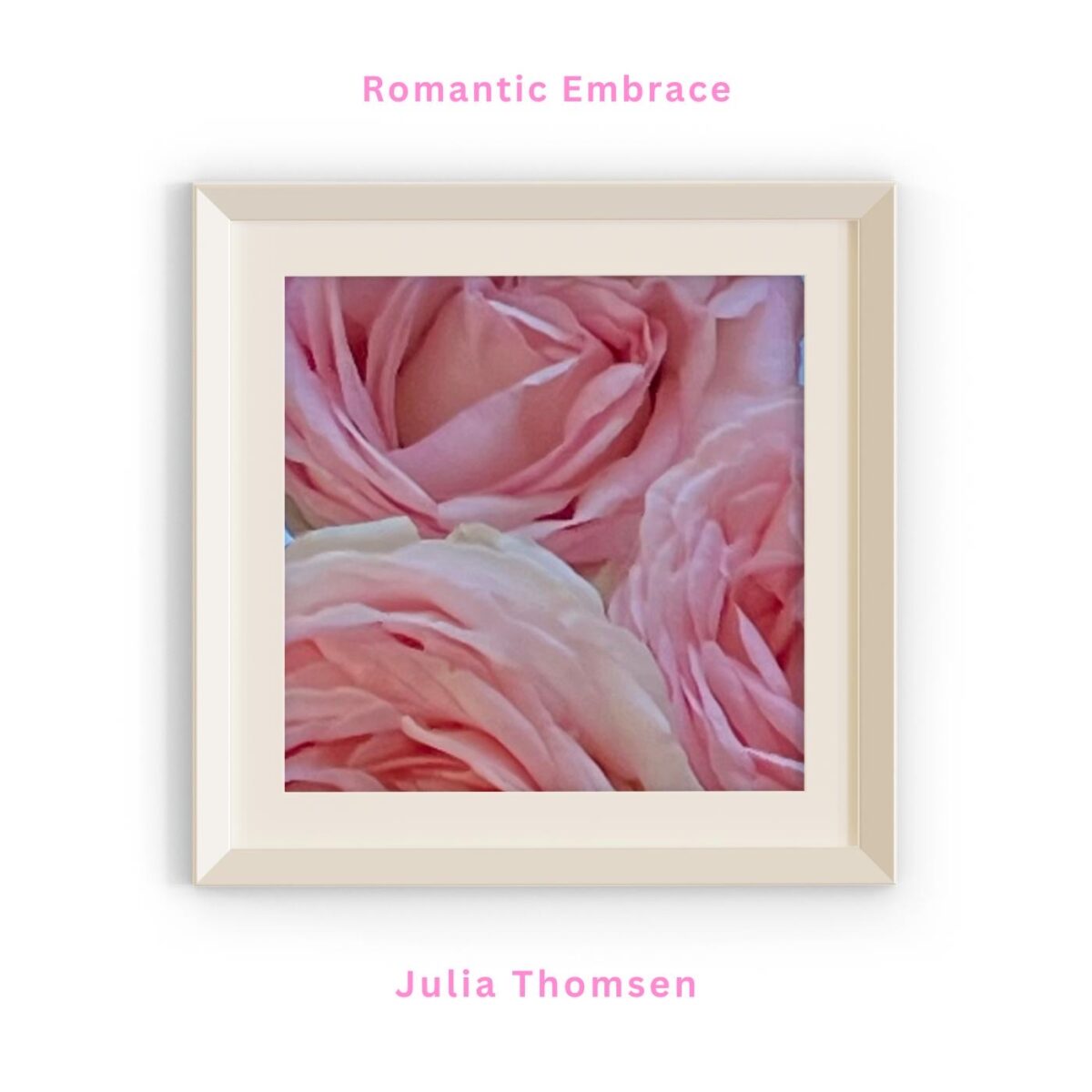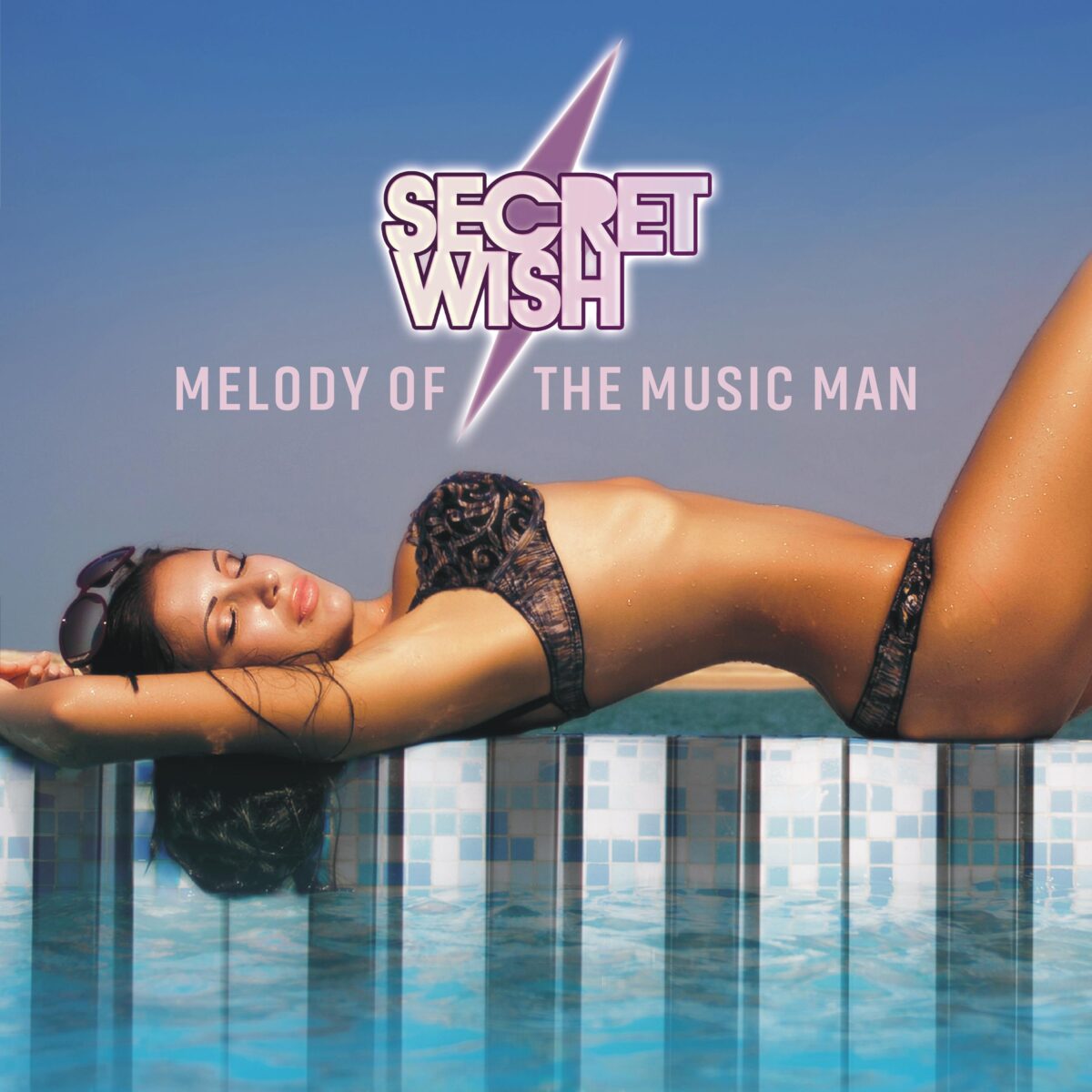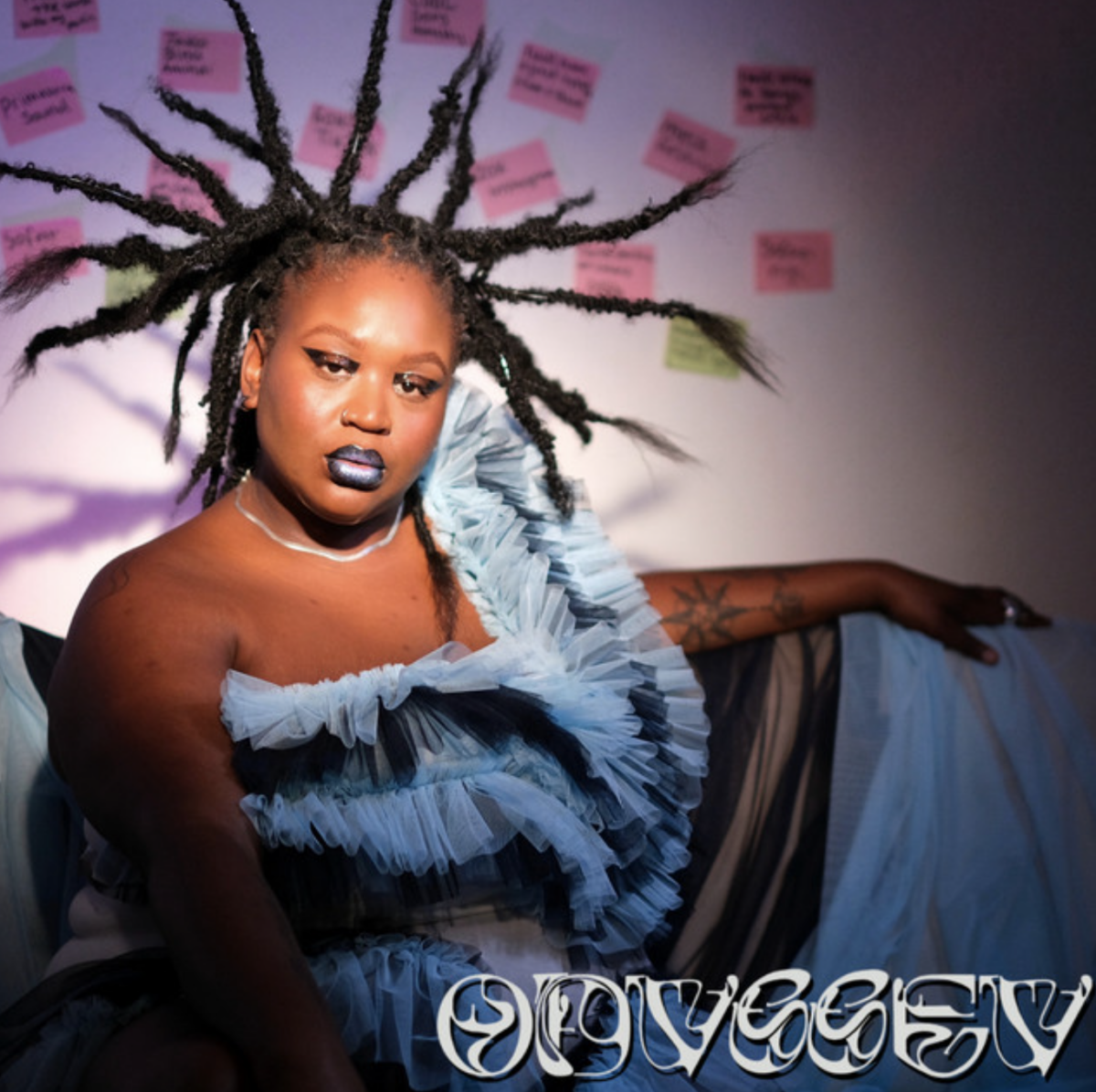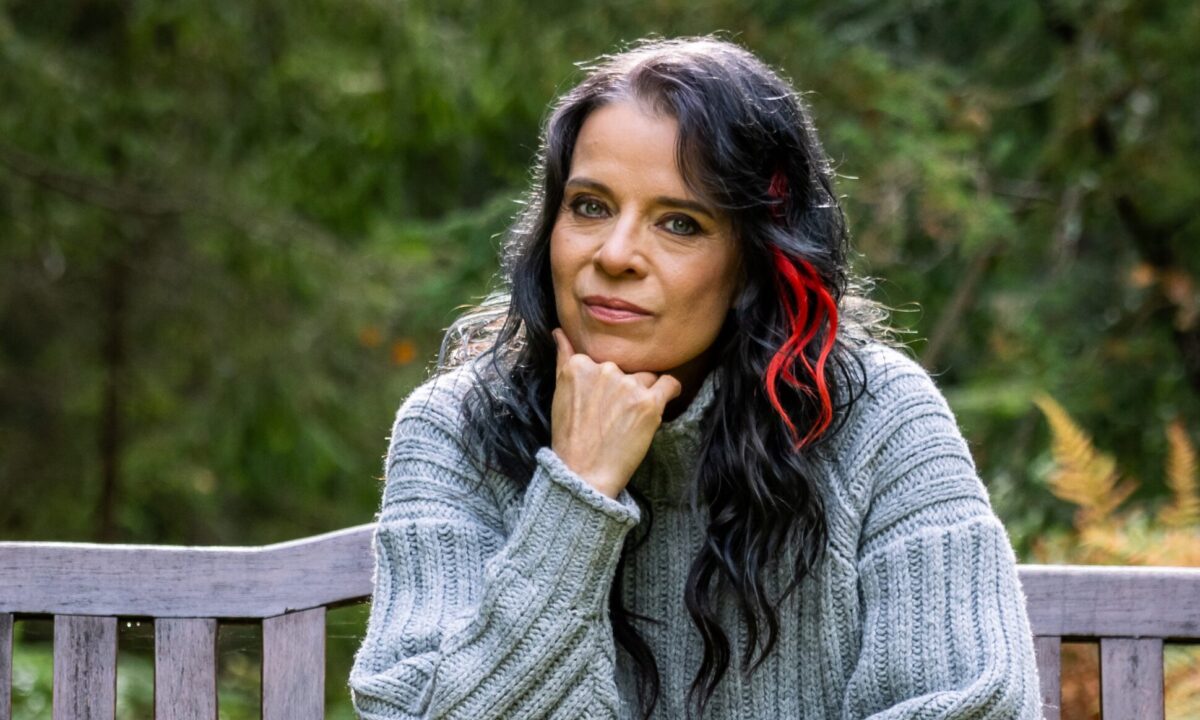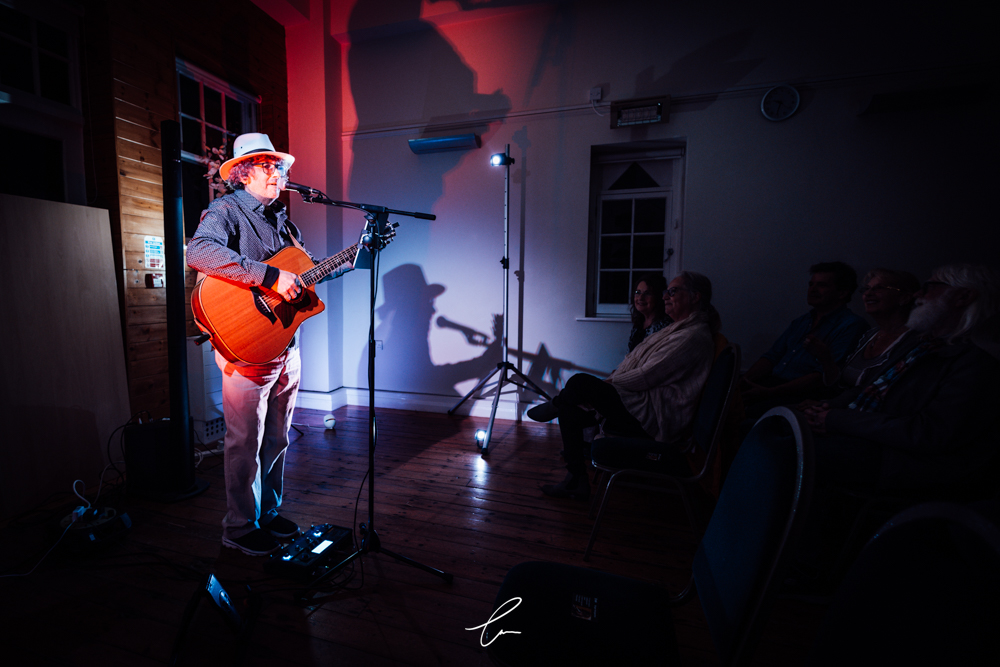How did your songwriting process for “Pure and Simple” differ from “Broken Compass”?
My songwriting process hasn’t changed between both albums. The one exception is with the new album title track “Pure and Simple” where Tim Levey wrote the original lyrics. I added the middle-8 lyrics and adjusted a few of the rest. At this point I felt inspired enough to complete the song.
I still look for inspiration from the world around me and from my personal experiences.
What inspired the emotional depth and drum solo in “Felixstowe”?
It was a grey rainy day in Norfolk. I was feeling low, I guess. I had been playing “Old Man” by Neil Young and I liked the F to D chord change that it has in it. I played around on the guitar and got a nice chord sequence by adding a G chord.
“Felixstowe”, at the time, was just a placeholder word destined to be replaced at some point. I googled “Felixstowe “ and found that it has a ferry. The songwriting took on a life of its own and I imagined a grey, wet, dank ferry town and a breakup song.
The drum solo came about because the overwhelming feelings in the songs were loneliness, sadness and anger. I imagined a lone drummer in a boat house thrashing out these feelings as the ferry, with his love on board, left. My producer Aeron Z Jones immediately got it and the drum track came to life.
I’m pleased to say that “Felixstowe”, and two other tracks (so far) from the new album, have been played on BBC radio.
How did working with Aeron Z Jones and Tina Blaber shape the album’s sound?
Aeron always has a huge influence on the sound of every track. He’s a skilled musician and multi-instrumentalist. We work well together and the ideas he brings to each song are usually good ones. I give him space to be creative and he does just that. This was the same on my previous album “Broken Compass”.
I’ve worked with Tina Blaber for many years. She has a spectacular voice and some songs I write really need her female vocal. She is often on my mind when songwriting. It’s great knowing that she will deliver what I need. She sings on “King” and “Doors”.
Tina and I have recently released a co-written single called “The Book” featuring Cutting the Mustard. On this song I play acoustic guitar and sing backing vocals and Tina sings lead vocals. Aeron Z Jones also produced it.
What does the title track “Pure and Simple” represent to you?
It surprised me how much I identified with the words in this song, especially as the original lyrics were written by someone else (Tim Levey). I do like things pure and simple, I’m not that great with change, I like to know what I’m doing in most things, and, like many people I want to love and be loved.
What do you want listeners to take away from “Pure and Simple”?
I’d like people to realise that there’s lots more to come from me musically. I’d like them to come with me on the journey.
Photo Credit: Ervin Munir.
